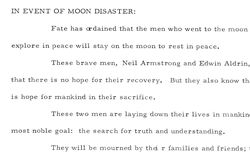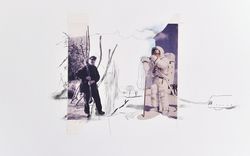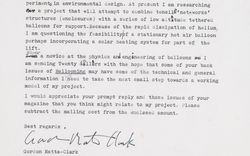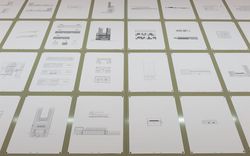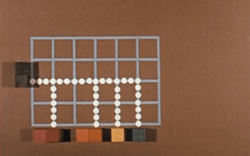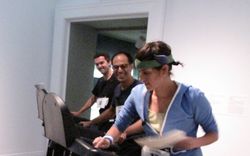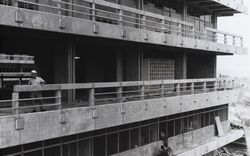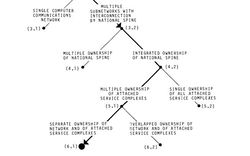In the Event of Moon Disaster
A memo by Bill Safire
“For every human being who looks up at the moon in the nights to come will know that there is some corner of another world that is forever mankind.” —Richard Nixon (in the event of moon disaster)
On 18 July 1969, presidential speechwriter and later political columnist William Safire drafted a memo to White House Chief of Staff H. R. Haldeman containing a speech for Richard Nixon. Intended to be read on television “in the event of moon disaster,” the President’s speech was prepared in anticipation of a catastrophe causing the death of Apollo 11 astronauts Neil Armstrong and Buzz Aldrin. The speech placed the moon mission in a broad context of human exploration and ingenuity, at once hailing the astronauts’ heroic dedication and sacrifice, and emphasizing mankind’s dominion over and beyond the earth. In addition, the memo included instructions to the President to telephone the “widows-to-be” before his address to the nation, as well as burial procedures “at the point when NASA ends communication with the men.”
Safire, who died in September 2009, reflected on the speech in an op-ed essay in the New York Times on the 30th anniversary of Apollo 11’s successful mission to the moon. This memo was published in our 2010 publication Other Space Odysseys.
